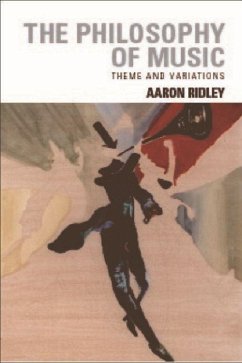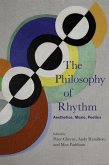Ridley's book is both an introduction to philosophy of music generally and an introduction to an individual, pungently flavoured philosophy of music. His arguments are lively and provocative, and to boot, he writes like a dream. This is the kind of book that reminds one why philosophy matters, especially as applied to the things we love most.-Jerrold Levinson, professor of philosophy, University of Maryland This outstanding book provides new and distinctive approaches to the five central topics of musical aesthetics: understanding, representation, expression, performance and profundity. The central theme is the failure of the orthodox view-that pieces of music are more or less self-contained structures of sound-accounts for important features of our musical experience, and explains why music should matter to us. Each chapter is built around a single musical work. Readers are introduced to the main positions in the philosophy of music. Ridley exposes and corrects the failure of the orthodox view and proposes fresh solutions. Additionally, Ridley offers innovative approaches to the philosophy of song, musical ontology, and to questions about the value of music. P>Features * Broad, accessible introductory overview to philosophy of music * Original and stimulating insights
Hinweis: Dieser Artikel kann nur an eine deutsche Lieferadresse ausgeliefert werden.
Hinweis: Dieser Artikel kann nur an eine deutsche Lieferadresse ausgeliefert werden.








